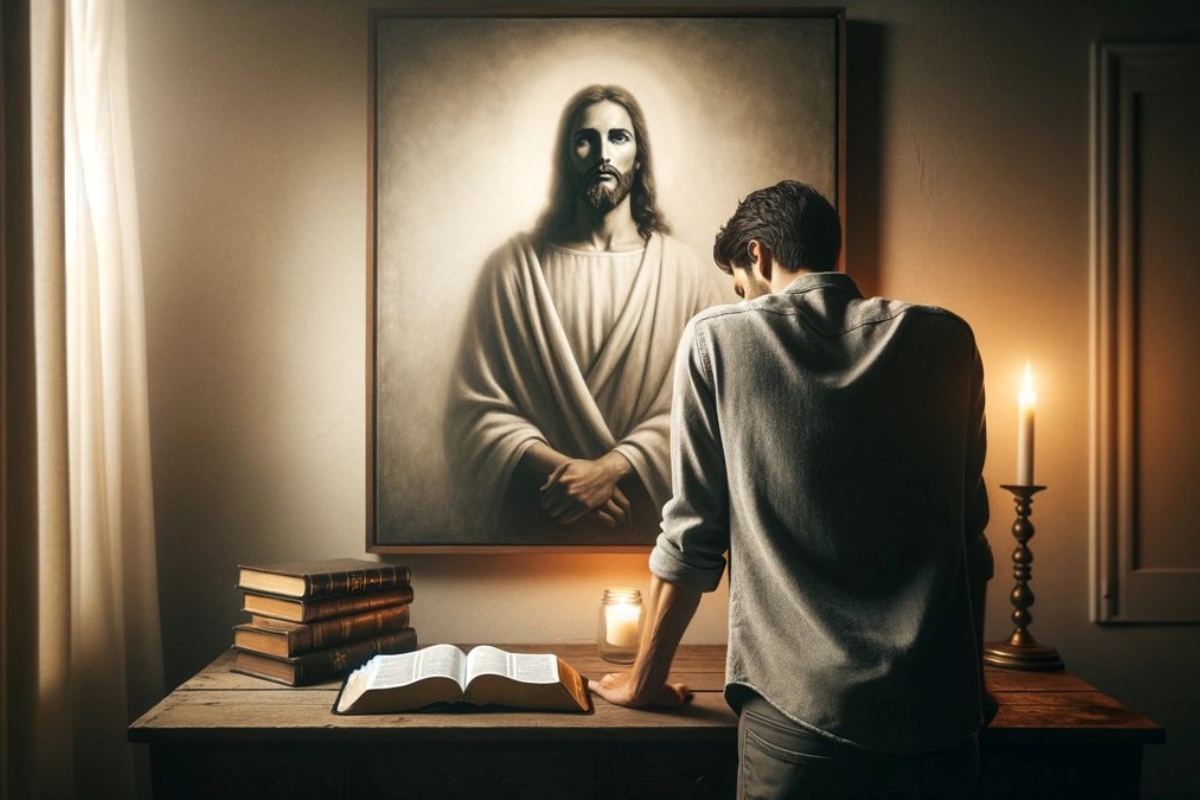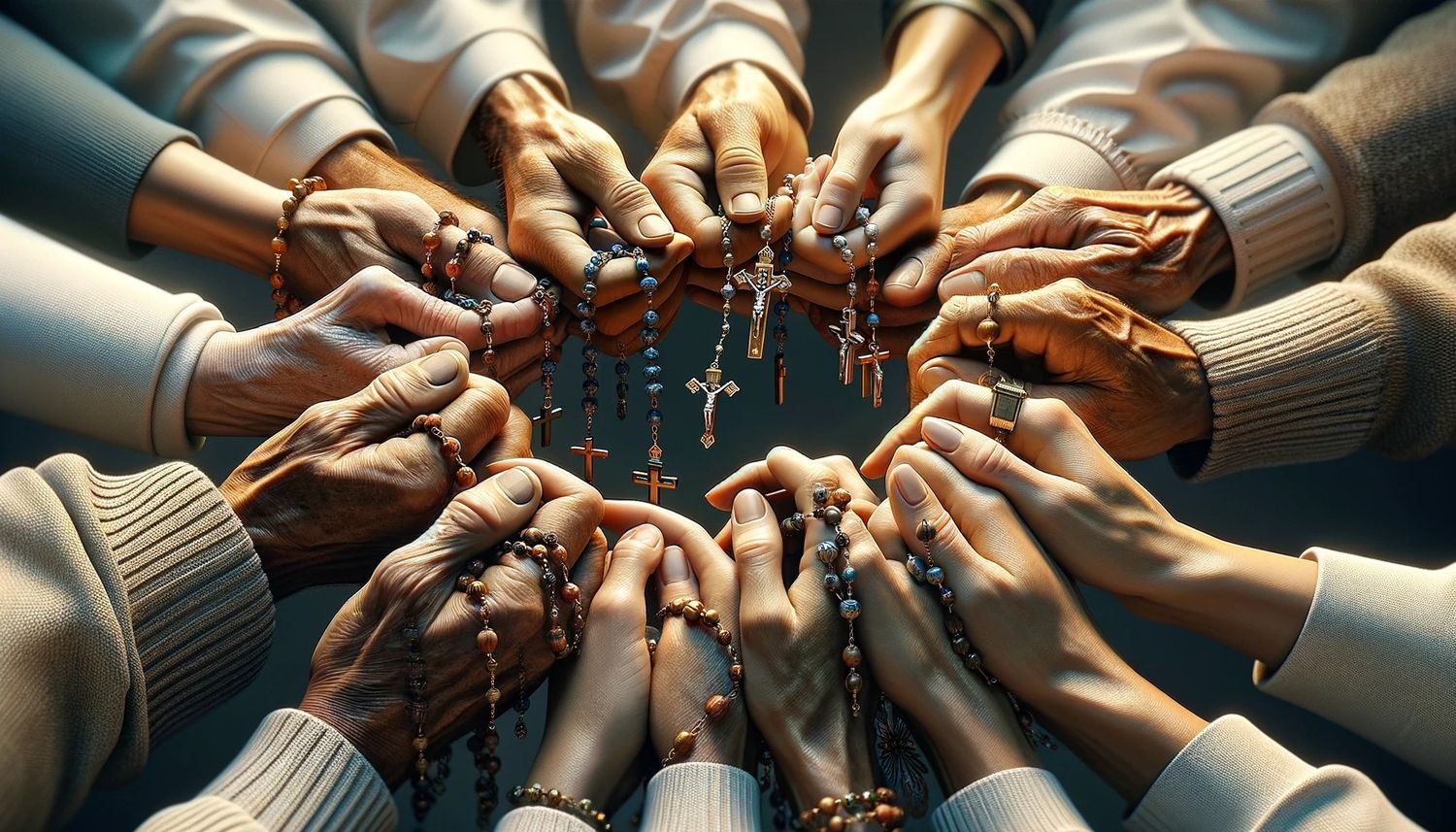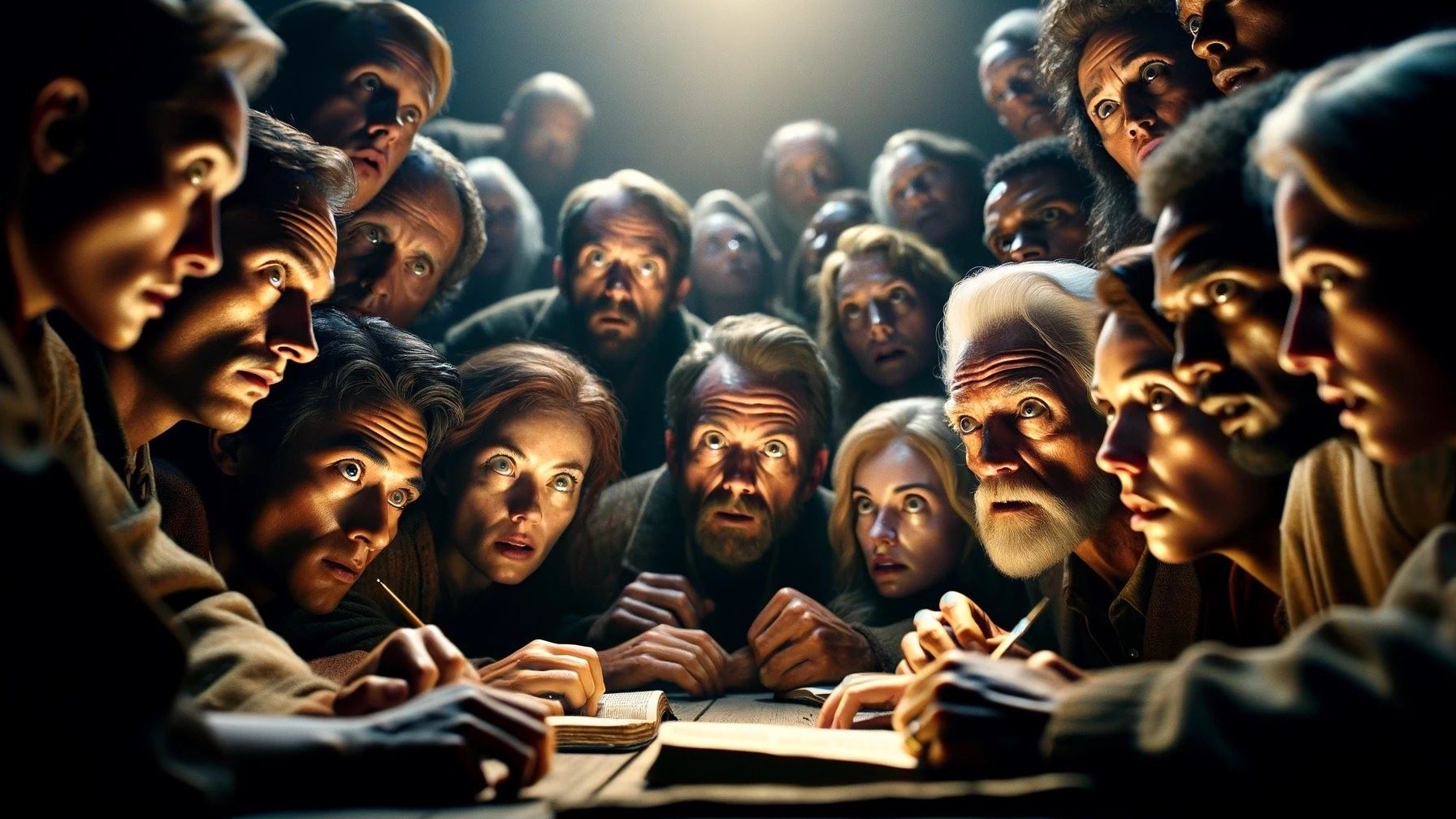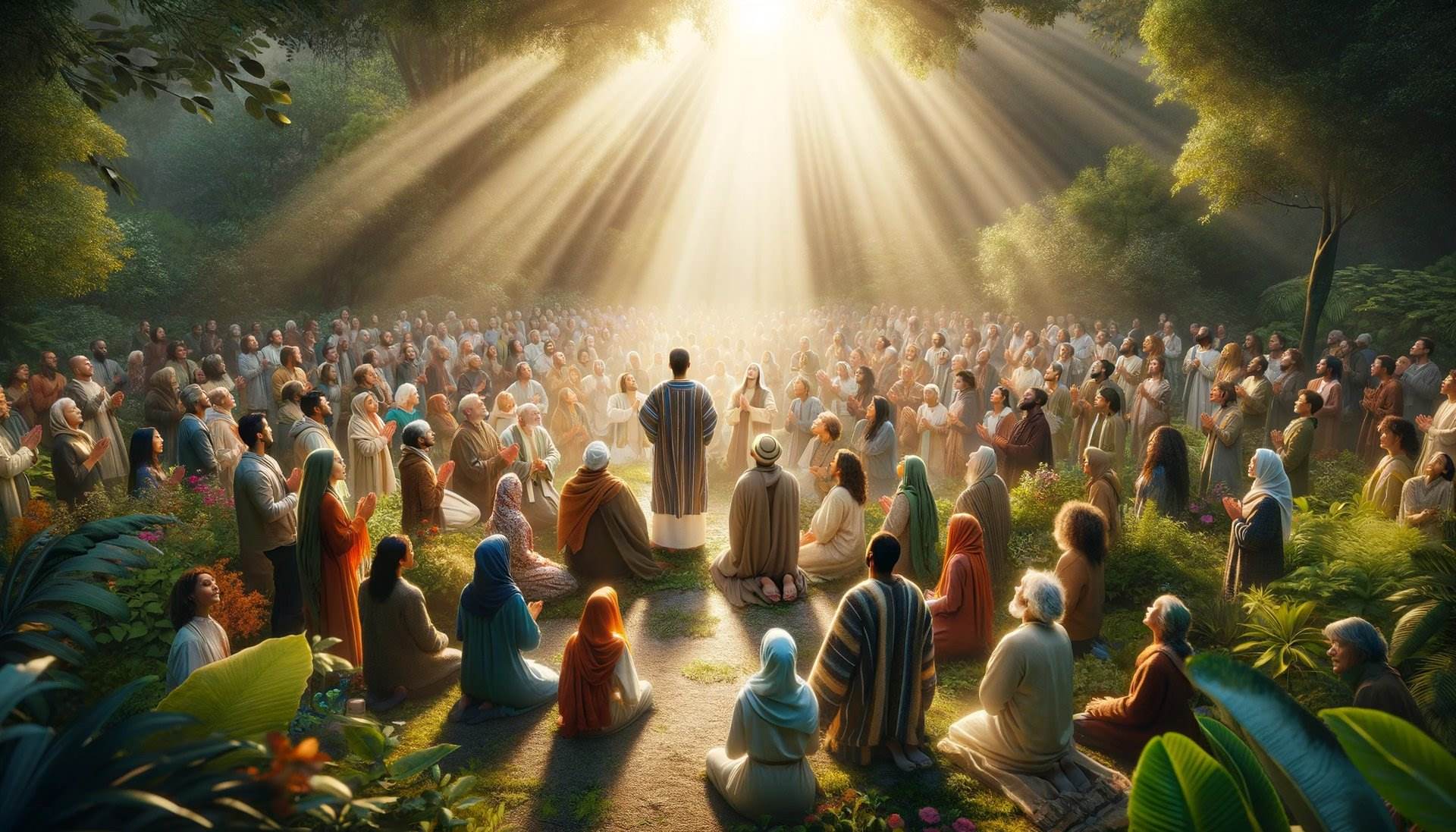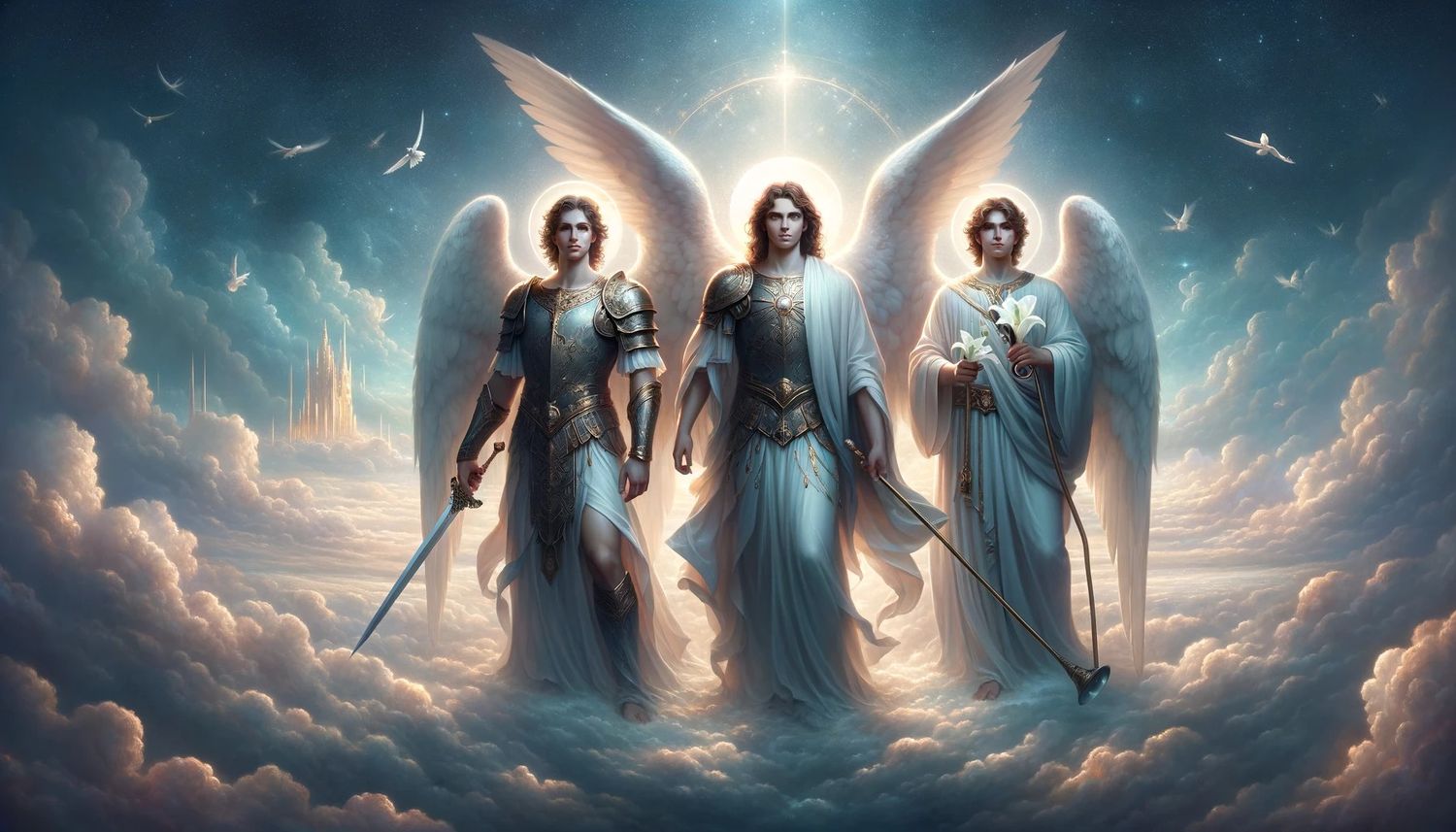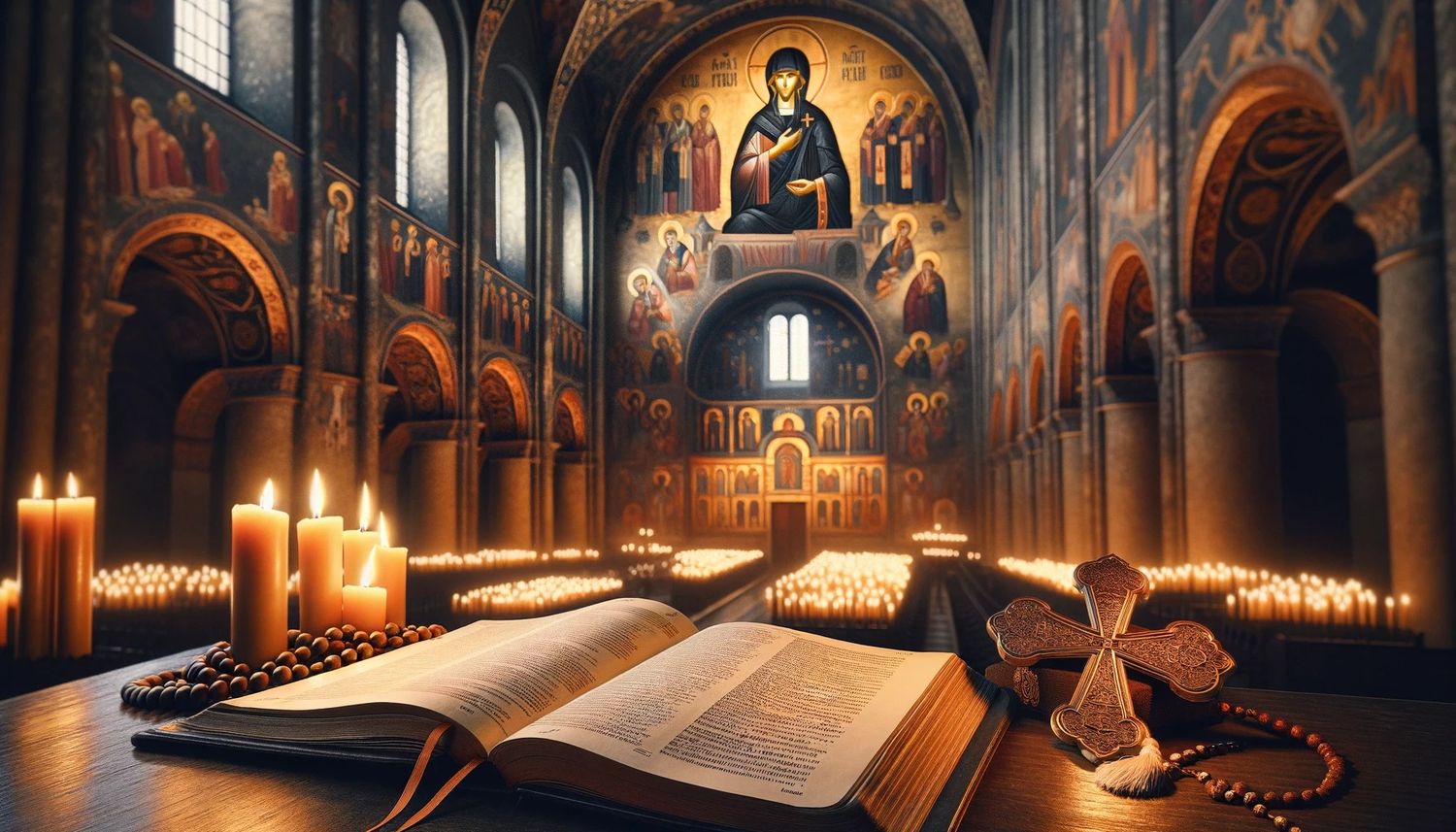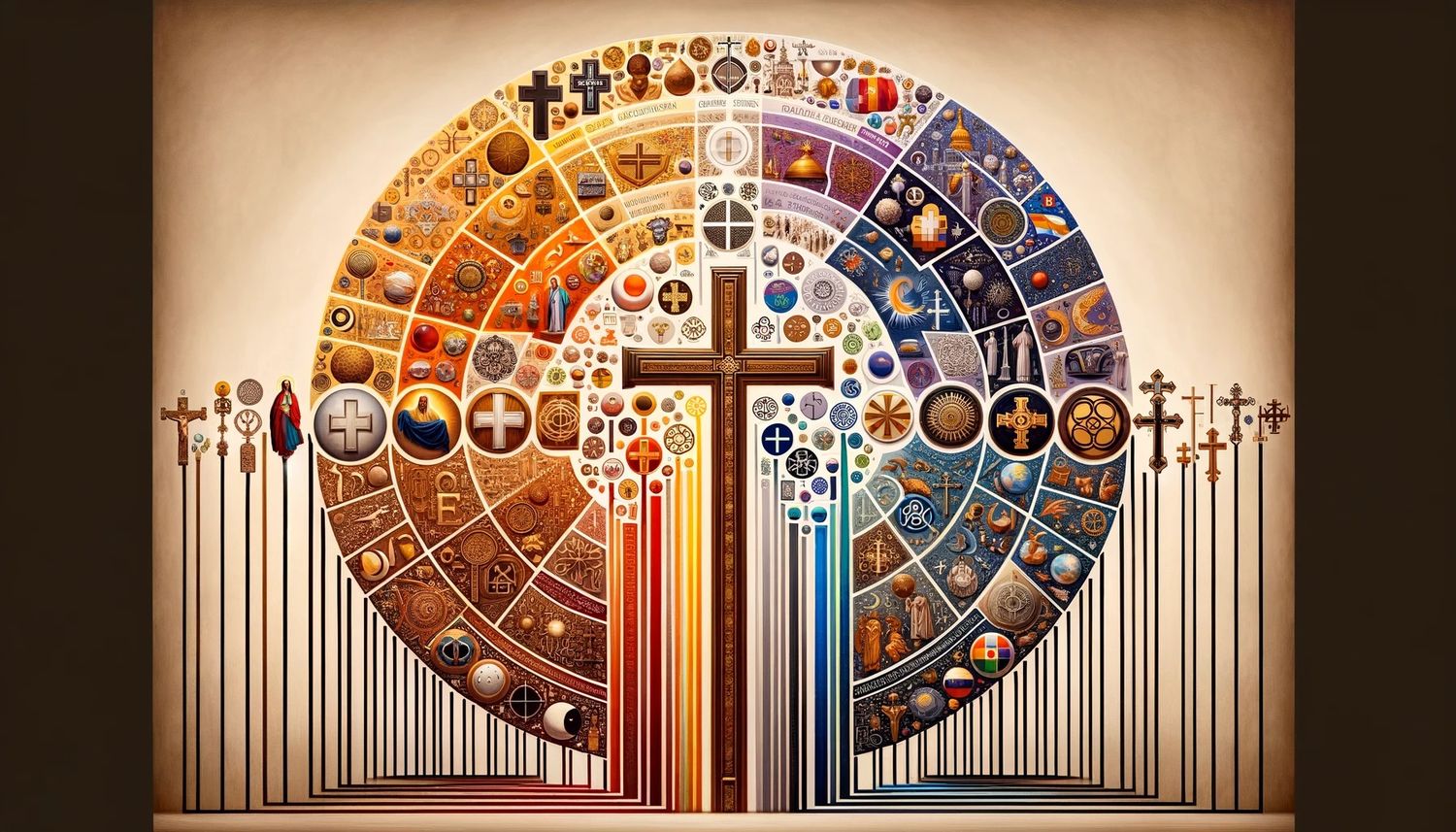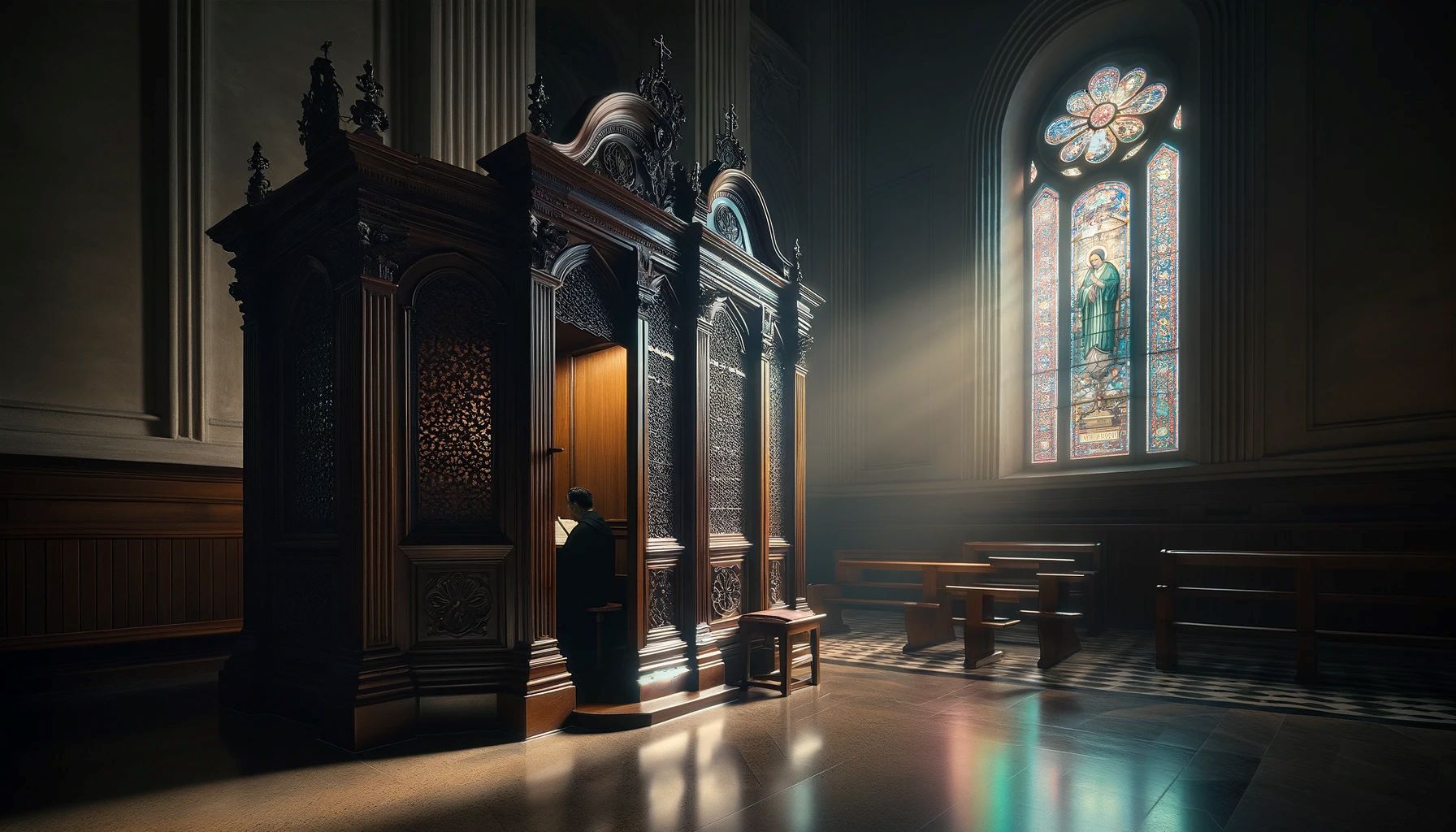Home>Theology and Spirituality>Why Do So Many People Hate Catholicism


Theology and Spirituality
Why Do So Many People Hate Catholicism
Published: February 16, 2024
Peter Smith, Editorial Director at Christian.net, combines deep insights into faith, politics, and culture to lead content creation that resonates widely. Awarded for his contributions to religious discourse, he previously headed a major organization for religious communicators, enhancing dialogue on faith's societal impacts.
Discover the reasons behind the widespread aversion towards Catholicism and explore its impact on theology and spirituality. Uncover the complexities of this contentious issue.
(Many of the links in this article redirect to a specific reviewed product. Your purchase of these products through affiliate links helps to generate commission for Christian.net, at no extra cost. Learn more)
Table of Contents
Introduction
Catholicism, with its rich history and deep-rooted traditions, has been a subject of both reverence and contention throughout the ages. The Catholic Church, often referred to as the oldest institution in the Western world, has a global presence and a profound influence on culture, morality, and spirituality. However, despite its widespread following and enduring legacy, Catholicism has also faced significant criticism and opposition from various quarters.
The reasons behind the widespread disdain for Catholicism are multifaceted and complex. From historical controversies to modern-day scandals, the Church has weathered numerous storms that have left a lasting impact on its reputation. Additionally, misconceptions and stereotypes surrounding Catholic beliefs and practices have contributed to the negative perceptions held by many individuals.
In this article, we will delve into the factors that have led to the pervasive animosity towards Catholicism. By examining the historical context, controversial beliefs and practices, scandals and controversies, as well as misunderstandings and stereotypes, we aim to shed light on the roots of this phenomenon. It is essential to approach this topic with nuance and empathy, recognizing that the sentiments towards Catholicism are deeply intertwined with personal experiences, cultural influences, and societal dynamics.
As we navigate through the complexities of this subject, it is important to maintain a balanced perspective, acknowledging both the positive and negative aspects of Catholicism. By doing so, we can gain a deeper understanding of the factors that have contributed to the widespread aversion towards this ancient faith tradition.
Read more: Why Do People Hate Jesus Christ
Historical Context
The roots of animosity towards Catholicism can be traced back to a complex historical tapestry woven with political, social, and religious threads. The Catholic Church, as an institution, has wielded immense power and influence throughout history, often intersecting with the affairs of states and shaping the course of nations. This intertwining of spiritual and secular authority has, at times, led to contentious relationships with rulers and populations, contributing to a legacy of conflict and mistrust.
One pivotal historical event that significantly impacted perceptions of Catholicism was the Protestant Reformation of the 16th century. The emergence of Protestantism, spearheaded by reformers such as Martin Luther and John Calvin, challenged the authority and practices of the Catholic Church, sparking a schism that reverberated across Europe. The ensuing religious wars and ideological divisions deepened animosity towards Catholicism among those who embraced the tenets of the Reformation.
Furthermore, the historical association of the Catholic Church with the Inquisition, a series of tribunals established to combat heresy, has left a lasting imprint on the collective consciousness. The methods employed by the Inquisition, including torture and persecution, have become emblematic of an era marked by religious intolerance and authoritarianism. This dark chapter in history continues to cast a shadow over perceptions of Catholicism, perpetuating a narrative of oppression and coercion.
The temporal power wielded by the papacy, particularly during the height of the Papal States, also engendered tensions with secular authorities. Conflicts between popes and monarchs, as well as the intricate web of alliances and rivalries within the European power structure, contributed to a climate of suspicion and rivalry that shaped attitudes towards Catholicism.
Moreover, the historical entanglement of the Church with colonial endeavors and missionary activities has been a source of contention. The imposition of Catholicism on indigenous cultures, often accompanied by cultural erasure and exploitation, has left deep scars and fueled resentment towards the Church.
In understanding the historical context of animosity towards Catholicism, it is crucial to recognize the enduring impact of these historical dynamics on contemporary perceptions. The echoes of past conflicts and power struggles continue to reverberate in the present, shaping the lens through which many individuals view Catholicism.
Controversial Beliefs and Practices
The Catholic Church's teachings and practices have been a source of controversy and contention, contributing to the negative perceptions held by many. One of the most contentious issues is the Church's stance on contraception and reproductive rights. The prohibition of artificial birth control methods, including condoms and contraceptive pills, has sparked debates on individual autonomy and sexual health. This stance has been particularly scrutinized in the context of addressing overpopulation and preventing the spread of sexually transmitted infections.
Additionally, the Church's position on gender and sexuality has been a point of friction. The traditional teachings on marriage as a sacramental union between a man and a woman, as well as the rejection of same-sex relationships, have elicited criticism from advocates of LGBTQ+ rights and equality. The ongoing discourse on inclusivity and acceptance has underscored the divergence between the Church's teachings and evolving societal attitudes towards gender and sexual orientation.
Furthermore, the hierarchical structure of the Church, with an exclusively male priesthood and the absence of female ordination, has been a subject of intense scrutiny. The exclusion of women from leadership roles within the Church has prompted discussions on gender equality and representation, challenging the traditional norms upheld by Catholic doctrine.
The doctrine of papal infallibility, which asserts the pope's immunity from error when speaking ex cathedra on matters of faith and morals, has also been a point of contention. Critics have raised concerns about the implications of such authority and its impact on theological discourse and the autonomy of individual conscience.
The veneration of relics and saints, as well as the practice of indulgences, has been viewed with skepticism by some, who perceive these traditions as superstitious or materialistic. The intricate rituals and symbolism associated with Catholic worship, while deeply meaningful to adherents, have been a source of misunderstanding and criticism from outside observers.
The controversies surrounding these beliefs and practices have contributed to a perception of Catholicism as rigid, out of touch, and resistant to change. The tension between traditional teachings and contemporary values has fueled debates and led to estrangement among those who find themselves at odds with the Church's doctrinal positions.
Navigating the complexities of these controversial beliefs and practices requires a nuanced understanding of the theological, cultural, and ethical dimensions at play. By engaging in open dialogue and seeking common ground, it is possible to foster greater understanding and empathy amidst differing perspectives on Catholic teachings and traditions.
Scandals and Controversies
The Catholic Church has been marred by a series of scandals and controversies that have profoundly shaken public trust and tarnished its reputation. One of the most widely publicized and deeply troubling issues has been the prevalence of sexual abuse within the Church. Revelations of widespread misconduct by clergy members, including cases of child sexual abuse, have sparked outrage and condemnation on a global scale. The mishandling of these cases by Church authorities, often involving cover-ups and inadequate responses, has further exacerbated the gravity of these scandals.
The profound impact of these revelations cannot be overstated, as they have inflicted immeasurable harm on the lives of survivors and eroded the credibility of the Church as an institution entrusted with moral authority. The failure to effectively address and prevent instances of abuse has led to profound disillusionment among both the faithful and the broader public, giving rise to a deep-seated sense of betrayal and anger.
In addition to the sexual abuse crisis, financial improprieties and allegations of corruption have also cast a shadow over the Church. Reports of embezzlement, money laundering, and opaque financial practices have raised serious concerns about the stewardship of Church resources and the transparency of its financial operations. These revelations have fueled skepticism and skepticism about the ethical conduct of Church leadership, undermining the moral standing of the institution.
Moreover, the historical complicity of the Church in various forms of oppression, including its role in the transatlantic slave trade and its collaboration with authoritarian regimes, has been a source of moral reckoning. The acknowledgment of past wrongs and the imperative to address the legacies of complicity with injustice have prompted soul-searching within the Church and elicited demands for accountability and reparative action.
The cumulative impact of these scandals and controversies has profoundly shaped public perceptions of Catholicism, fostering a climate of skepticism and disillusionment. The erosion of trust resulting from these crises has posed a formidable challenge to the Church's moral authority and its ability to effectively engage with contemporary ethical and social issues.
As the Church grapples with the repercussions of these scandals, there is a pressing need for transparency, accountability, and genuine efforts to address the systemic issues that have given rise to these crises. Rebuilding trust and restoring the integrity of the Church will require sustained commitment to justice, compassion for survivors, and a steadfast dedication to upholding the values of accountability and ethical conduct. Only through earnest and decisive action can the Church begin to reconcile with the profound wounds inflicted by these scandals and controversies.
Misunderstandings and Stereotypes
Misunderstandings and stereotypes surrounding Catholicism have contributed to the pervasive animosity towards the faith tradition. One prevalent misconception revolves around the perception of Catholicism as monolithic and homogenous, failing to recognize the diverse theological perspectives and cultural expressions within the global Catholic community. This oversimplification obscures the rich tapestry of traditions, rituals, and theological interpretations that exist within Catholicism, leading to a reductive and distorted portrayal of the faith.
Stereotypes regarding the rigidity and dogmatism of Catholic teachings have also perpetuated a narrative of inflexibility and intolerance. While the Church upholds certain core doctrines, there exists a dynamic theological tradition that engages with contemporary issues and ethical dilemmas. The nuanced ethical framework articulated by Catholic social teaching, addressing matters such as poverty, human rights, and environmental stewardship, reflects a commitment to dialogue and engagement with the complexities of the modern world.
Furthermore, the historical caricature of Catholics as blindly obedient or superstitious has fostered a climate of misunderstanding. The emphasis on individual conscience and moral discernment within Catholic moral theology challenges the notion of uncritical obedience, underscoring the importance of informed and thoughtful engagement with matters of faith and ethics. Similarly, the veneration of saints and the use of religious imagery and symbolism are deeply rooted in theological significance and spiritual devotion, often misconstrued as mere superstition or idolatry.
The portrayal of Catholicism in popular media and cultural discourse has also shaped stereotypes that fail to capture the multifaceted nature of the faith. From sensationalized depictions of clergy to simplistic characterizations of Catholic moral teachings, the media landscape has often perpetuated reductive and sensationalized narratives that contribute to a distorted understanding of Catholicism.
Addressing these misunderstandings and stereotypes requires a commitment to fostering dialogue, promoting accurate representations of Catholic beliefs and practices, and engaging with diverse voices within the Catholic community. By challenging misconceptions and offering nuanced perspectives, it is possible to cultivate a more informed and empathetic approach to understanding Catholicism, transcending the limitations of stereotypes and embracing the richness and diversity inherent within the faith tradition.
Read more: Why Do Baptist Hate Catholic
Conclusion
In conclusion, the widespread animosity towards Catholicism is a complex tapestry woven from historical legacies, controversial beliefs and practices, scandals and controversies, as well as misunderstandings and stereotypes. The historical context, marked by power struggles, schisms, and colonial entanglements, has left indelible imprints on perceptions of Catholicism. The controversies surrounding the Church's teachings on contraception, gender, and papal authority have fueled debates and estrangement, reflecting the tension between tradition and societal evolution. Moreover, the profound impact of scandals, particularly the sexual abuse crisis and financial improprieties, has profoundly eroded public trust and moral authority, posing a formidable challenge to the Church's integrity. Additionally, misunderstandings and stereotypes have perpetuated reductive and distorted portrayals of Catholicism, hindering a nuanced understanding of the faith tradition.
Amidst these complexities, it is essential to approach the subject with empathy and discernment, recognizing the multifaceted nature of the factors contributing to the widespread aversion towards Catholicism. Engaging in open dialogue, fostering transparency, and addressing systemic issues are imperative in navigating the path towards healing and reconciliation. By acknowledging the historical complexities, critically engaging with controversial issues, and challenging stereotypes, it is possible to foster a more informed and empathetic approach to understanding Catholicism. The richness and diversity inherent within the faith tradition invite a deeper exploration that transcends the limitations of misconceptions and biases.
Ultimately, the journey towards understanding and reconciling with the complexities of Catholicism requires a commitment to empathy, dialogue, and ethical reckoning. By embracing the nuances of the faith tradition and engaging with the challenges it faces, it is possible to cultivate a more inclusive and compassionate discourse that honors the diverse experiences and perspectives within the global Catholic community. In doing so, we can strive towards a more profound understanding of Catholicism, transcending the shadows of animosity to embrace a narrative of empathy, reconciliation, and shared humanity.

